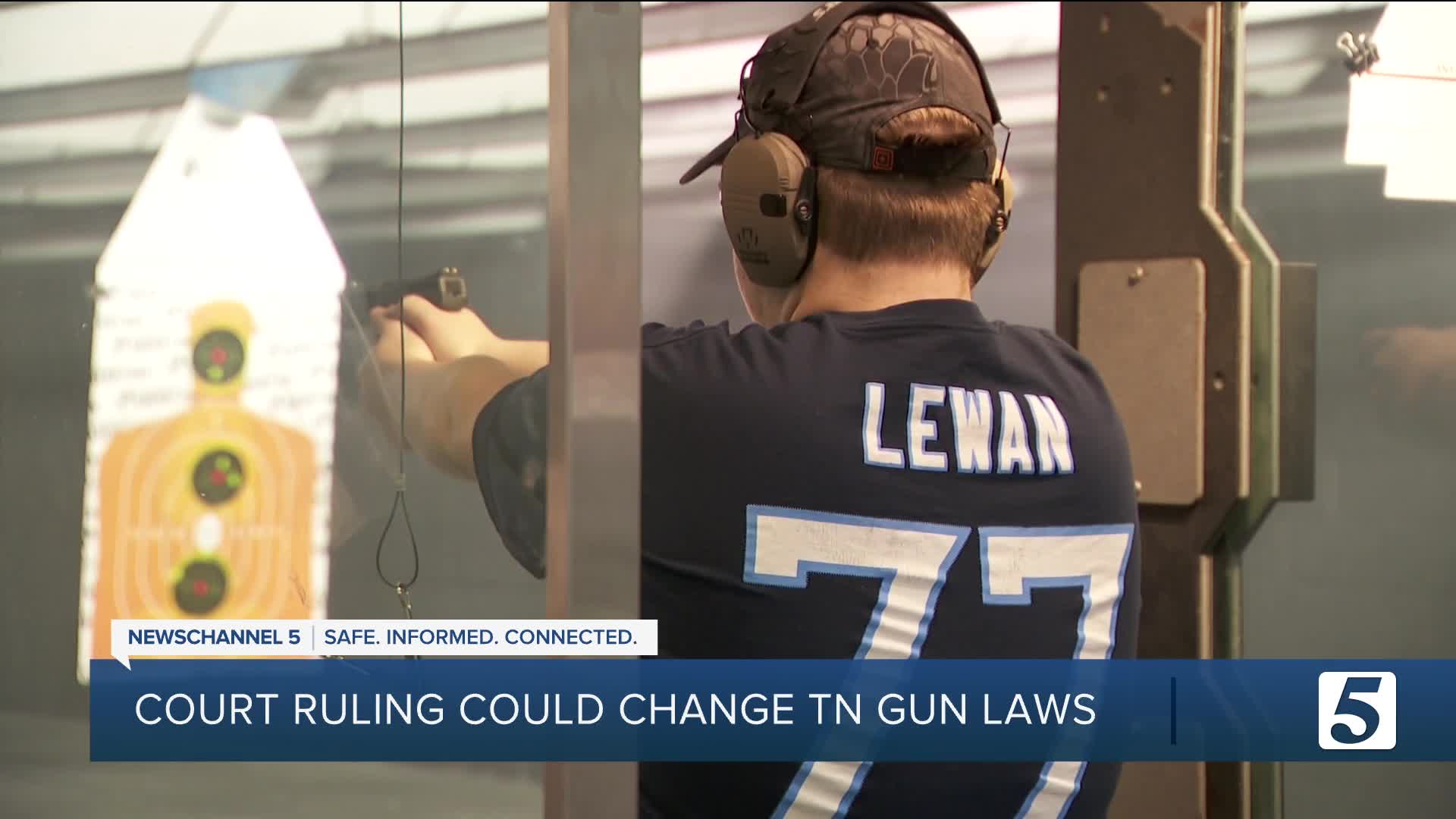NASHVILLE, Tenn. (WTVF) — A landmark Tennessee court ruling has overturned two state gun laws, allowing firearms in state parks and restricting when police can arrest someone for carrying a weapon.
The decision by a three-judge panel, consisting of magistrates from each of Tennessee's three grand divisions, seemed to have even surprised Tennessee Gov. Bill Lee, who said he is still trying to understand the full implications of the ruling.
"I don't have a sense of where it stands right now," Lee said. "Really, all I can say at this point about that is we're trying to understand fully what this ruling is."
Two major changes to gun laws
According to longtime attorney David Raybin, the court overturned two Tennessee gun laws with far-reaching effects. The first involves a previous policy that banned guns in state parks. "They're no longer considered sensitive places, so if a person wants to carry a weapon in a public park, they can," Raybin said.
The second change involves a statute called "intent to go armed," which is more complicated.
"This law changes the presumption to where an officer can no longer stop or arrest somebody or seize their weapon just because they have a firearm in their possession," Raybin said.
Because Tennessee no longer requires concealed carry permits but left the "intent to go armed" law on the books, Raybin said it created confusion. Under the new ruling, officers could only stop or arrest someone with a weapon if it was connected to a criminal act.
"You can't have ambiguous laws floating around because then people don't know what the law is," Raybin said.
The ruling doesn't affect businesses that post "no firearms allowed" signs. Other required gun-free zones remain in place, including schools, courtrooms, polling places and the state Capitol where the legislature meets.
The Court's constitutional analysis
The three-judge panel found that Tennessee's "Going Armed Statute" criminalized the entire right to bear arms portion of the Second Amendment.
The court determined that the statute's use of "intent to go armed" actually criminalizes an intent to carry weapons for self-defense, which is constitutionally protected. Raybin said Tennessee's laws were in conflict with recent U.S. Supreme Court interpretations of the Second Amendment.
Regarding state parks, the court ruled that recreational areas like parks, playgrounds, and civic centers are not analogous to historically recognized "sensitive places" such as schools, courthouses, legislative assemblies and polling places where firearms have traditionally been restricted.
The court noted that recreational areas, while important to public health and well-being, are not vital to the functioning of government in a way that would justify restricting constitutional rights.
Timeline remains unclear
When the changes will take effect remains uncertain, with potential appeals and legislative action still possible. "That's a great question because lawyers are debating that. I think the safe thing to say is -- it may not be final and I don't know if anyone should rely on it," Raybin said.
Raybin said he thinks the legal ambiguity surrounding this issue needs to be resolved soon.
"That's the most important thing in my view: uncertainty in regards to the law and firearms is dangerous," Raybin said.
The Tennessee Attorney General's office said a decision on whether to appeal the ruling is still under review.
Do you agree with the court's ruling, or do you have concerns? Share your thoughts with me at Chris.Davis@NewsChannel5.com.

The news surrounding student loan repayment has been ever-changing over the last few years. When it comes to your money, confusion is never a good thing. Thankfully, Robb Coles helps us sort out the path forward. Check out his story for some practical tips and insight behind the latest changes.
- Carrie Sharp





